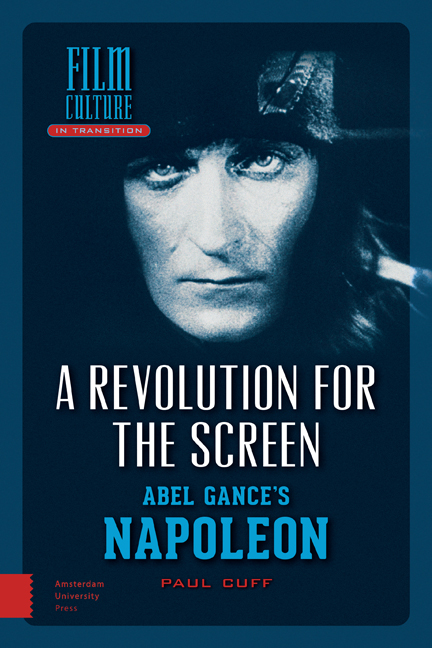Book contents
- Frontmatter
- Dedication
- Contents
- List of Illustrations
- Note on Formatting
- Acknowledgements
- Foreword
- Preface: Critical perspective
- 1 Napoleonic Ambition and Historical Imagination
- 2 Shaping Expectations: The Young Napoléon Bonaparte
- 3 Civilization and Savagery: Visions of the French Revolution
- 4 Mortal Gods: Voices of Power and of Providence
- 5 The Dark Light of Napoleonic Cinema
- 6 A View from the Margins of History
- 7 Melodrama and the Formulations of Family
- 8 Worlds in Transition: Class, consumption, Corruption
- 9 Death and Transfiguration
- Conclusion: The Case for Enthusiasm
- Filmography and Bibliography
- Index
- Film Culture in Transition
7 - Melodrama and the Formulations of Family
Published online by Cambridge University Press: 10 December 2020
- Frontmatter
- Dedication
- Contents
- List of Illustrations
- Note on Formatting
- Acknowledgements
- Foreword
- Preface: Critical perspective
- 1 Napoleonic Ambition and Historical Imagination
- 2 Shaping Expectations: The Young Napoléon Bonaparte
- 3 Civilization and Savagery: Visions of the French Revolution
- 4 Mortal Gods: Voices of Power and of Providence
- 5 The Dark Light of Napoleonic Cinema
- 6 A View from the Margins of History
- 7 Melodrama and the Formulations of Family
- 8 Worlds in Transition: Class, consumption, Corruption
- 9 Death and Transfiguration
- Conclusion: The Case for Enthusiasm
- Filmography and Bibliography
- Index
- Film Culture in Transition
Summary
The familial melodramas [in Gance's films] mirror those of his own life, and [his troubled childhood] explains why he withdrew into himself to build a kinder and more beautiful world with his imagination (Icart 1983: 12).
Introduction
NAPOLÉON not only offers a mythological account of its central hero but also an exploration of his human foibles. I want to demonstrate how the film counterbalances notions of Bonaparte as a ‘great man’ through the lengthy representation of his romance with Joséphine. This relationship, and the parallel story of Violine's unrequited love for Bonaparte, offer a fascinating and delightful set of scenes: poignant, ambivalent, and often very funny.
I also aim to challenge the notion that the ‘political melodrama’ of NAPOLÉON creates a simplistic depiction of ‘the nation as family’ (King 1984a: 162-3). By exploring the structure of dramatic narratives in other Gance films and their connections to the director's own biography, I will demonstrate a highly ambiguous attitude towards familial and romantic relationships. In NAPOLÉON, these issues are further complicated by the narrative restrictions engendered by the film's factual content: Gance’s melodrama must obey the impositions of history.
Incomplete families
Gance was the illegitimate child of Abel Flamant and Françoise Péréthon. Inheriting his father's first name and his mother's surname, he was raised by his maternal grandparents in the remote industrial town of Commentry. When Adolphe Gance began a relationship with Françoise, he adopted the three-year-old Abel and gave him his surname. Five years later, Gance’s mother and stepfather finally married and in 1898 this family moved from central France to the capital. Gance later obscured this provincial background and the Jewish ancestry of his biological father, claiming that he had a ‘carefree bourgeois childhood’ in a traditional Catholic household in Paris (Icart 1983: 11). He was also highly selective in accounts of his personal relationships: his first biographer was conveniently allowed to exaggerate the age of Gance's first wife and made no mention of his second or third marriages (Daria 1959). Considered in conjunction with the melodramatic tropes of his films, these issues assume more than just biographical importance.
- Type
- Chapter
- Information
- A Revolution for the ScreenAbel Gance's Napoleon, pp. 179 - 202Publisher: Amsterdam University PressPrint publication year: 2015



